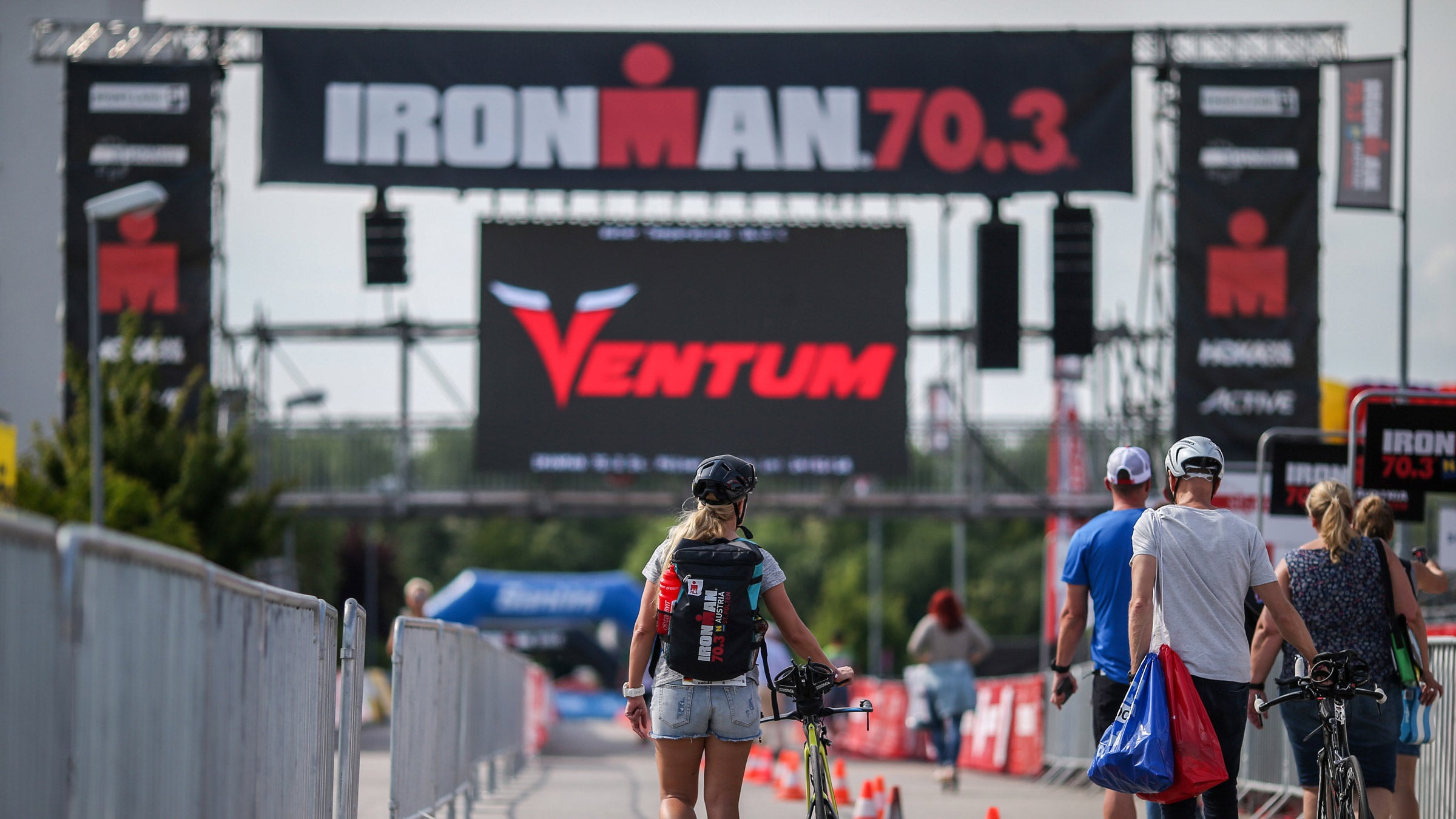Judge Rules in Favor of Ironman in Lawsuit Over Refunds

Athletes walk into the Ironman village at a 70.3 event. (Photo: Joern Pollex/Getty Images)
Yesterday, U.S. District Judge Tom Barber granted Ironman’s request for a summary judgement in a proposed class action lawsuit over the lack of refunds for races canceled due to the COVID-19 pandemic. The Florida judge ruled that the “no refund” clause athletes agree to when registering for a race was clear and fair.
The suit was filed against Ironman and the World Triathlon Corporation in May, alleging the company and its subsidiary, Competitor Group, owe athletes refunds for events canceled or postponed due to COVID-19. It was originally filed on behalf of one athlete, Mikaela Ellenwood, a Colorado resident who had registered for the Rock n’ Roll San Francisco half-marathon, which was scheduled for April 5. She had also purchased flights and accommodations for the event, according to the complaint. When that race was canceled on March 14, registrants had their entries deferred to the next year and were not given the option of a refund. Jorge Casanova, of Vallejo, California, was also added as a primary plaintiff to the suit. He registered for Santa Rosa 70.3, which was also canceled.
RELATED: Class-Action Lawsuit Filed Against Ironman Over Lack Of Refunds
“Defendants should not be permitted to force Plaintiff and members of the class to bear the financial burden of the events canceled as a result of COVID-19,” read the complaint, which was filed in the Middle District of Florida, where Ironman is headquartered.
The suit argued that Ironman Group, which operates hundreds of races around the globe, including the Rock n’ Roll running races, was “neither flexible nor understanding of participants’ concerns.”
Ironman’s lawyers argued that the case should be dismissed because the athletes signed a contract acknowledging no refunds would be given. Judge Barber agreed.
In his decision, the judge wrote: “This is a very simple case. No refunds means exactly what it says — no refunds.”
He also said that a no-refund clause is “fair and consistent with common sense,” given the type of events being debated. If race organizers were required to give refunds when events were canceled for issues beyond their control, he said, most race companies wouldn’t be able to sustain a business.
When an athlete registers for an event, there are a number of waivers and terms and conditions they accept and agree to. For instance, it’s fairly common to acknowledge that you will not be refunded in the event of a cancellation due to weather or due to an act of God—commonly referred to as a “force majeure” clause.
The issue was really more about athletes’ feelings of frustration over a perceived lack of information and customer service around their scheduled events. Many athletes complained that they had a hard time getting responses from Ironman or finding information about their rescheduled or postponed events.
In the last year, hundreds of races have been canceled due to COVID-related concerns. However, until an event is officially canceled or postponed, Ironman confirmed the standard non-COVID cancellation policy would still be in place. Those specific policies vary from race to race, but typically mean an athlete can not transfer or defer without paying a fee or losing a portion of their entry fee, and an athlete can not get a refund unless they’ve purchased registration insurance. That means for athletes waiting to find out if their race was canceled or postponed, there were often few options. Once an Ironman race was canceled or postponed due to COVID, most athletes were offered a deferral to the next year’s race or a transfer to a specific alternative race.
The plaintiff’s lawyers did not have any comment at this time. Read the full judge’s decision here.